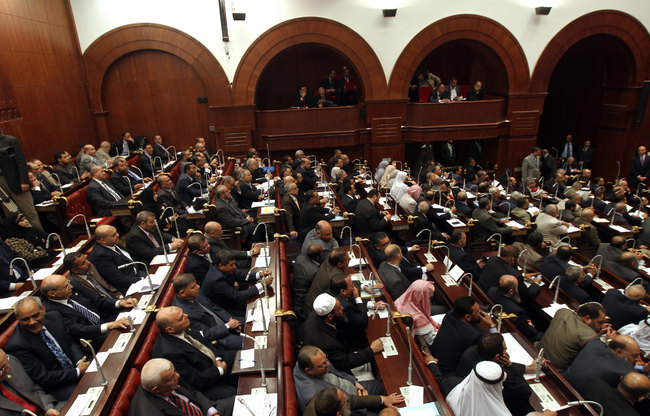
How should we evaluate Egypt’s new constitution? This was the pressing question in Egypt in the period leading up to and during the constitutional referendum. In an attempt to defend the new constitution, some have resorted to the argument that the final draft is acceptable in its entirety and that, when looking at the constitution as a whole, a few objectionable articles in it do not pose a significant problem. The truth is, however, that one single objectionable article should be enough to lead to the rejection of the constitution and a re-examination of its content. To illustrate this point, there is no better example than Article 230 of the ‘new’ Egyptian Constitution. It states: “the existing Shura Council shall assume full legislative authority until the new House of Representatives is seated.”
While there are many reasons to object to the text of this article, we can focus on two fundamental flaws. Firstly, transferring full legislative authority to the Shura Council contradicts the principle of representative democracy. Adopting a democratic system as a form of governance requires a commitment to the principles of that very system. Foremost among these principles is the idea that any representation of the people (such as an elected assembly) should represent the people under the same purview for which it was elected. Thus, when citizens elect representatives to act in their interests, this representation is a commitment that must be honored. Their fundamental responsibilities are known in advance and are the very basis on which they are elected.
In regards to the Shura Council, it is unacceptable for the people to elect a consultative assembly with limited specific powers (as defined by Article 37 of the March 2011 Constitutional Decree) for it to then become a parliament with full legislative authority. This is an attack on popular will. Furthermore, any arguments that popular will, expressed by the ratification of the constitution, granted the Shura Council this legislative task is unacceptable as “electoral will” is not to be confused with the “will to establish a new authority.” The former refers to choosing a representative to carry out a pre-defined task while the latter establishes a new authority, in which case it is imperative to re-elect those who will handle this new authority so that citizens are aware of their representatives’ powers during the selection process.
As for the second fundamental issue, granting the Shura Council legislative power is a grave breach of equal opportunity and just political practice. It is a known fact that the Islamist current holds the majority of the seats in the Shura Council, with the Freedom and Justice, Nour, Construction and Development, and Asala parties winning 147 out of the 180 seats reserved for its elected members. The decree issued by the President appointing 90 new members (or a third of the council) increased the number of members who identify with the Islamist current to over 180 out of the council’s 270 members (or, in other words, more than two thirds of the council.)
In what kind of democracy does a certain political current govern by means of an assembly that was elected on the basis of being a consultative body (the Shura Council), and that same political current uses its dominant position in the constituent assembly to grant the council full legislative authority, where it also has the majority? In what kind of democracy does an assembly monopolize legislative authority, with one third of its members appointed by a president who identifies with the same political current that controlled both the constituent assembly and the Shura Council?
It’s worth noting that less than seven percent of Egypt’s eligible voters elected two thirds of this Shura Council at a time when the council was thought to be of little or no value. It is also worth noting that the council itself was elected on the basis of an unconstitutional electoral law and that the judiciary was prevented from executing its task in this regard both ‘legally’ by the November 21 dictatorial decree that exempted the Shura Council from judicial review, and forcefully by protestors that surrounded the Supreme Constitutional Court.
Yet despite all this, the Shura Council will proceed with its illegitimate task of issuing new legislations that will have a significant impact on Egypt’s future. Most dangerous among the proposed legislation is the Parliamentary Elections Law. This means that the same political current will continue to control all of the rules of the game and what remains of a national consensus will come to an end. And thus, the hope of all those who voted in favor of the new constitution, the hope for stability, is lost.
Yussef Auf is an Egyptian judge and 2012 Humphrey Fellow at American University’s Washington College of Law. He is currently pursuing a PhD in Constitutional Law and Political Systems at Cairo University. He can be reached at yussufauf@hotmail.com.
Photo: AFP
Image: Shura%20AFP%20Dec%2026.jpg

